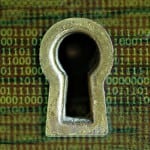The North American Energy Standards Board (NAESB), a wholesale and retail natural gas and power industry forum comprising 300 corporate members, will initially focus its standards development to support cybersecurity and blockchain out of 11 digital technologies it identified that are quickly transforming the energy space.
The board’s April 2019–formed Digital Committee, which comprises 16 members from a variety of organizations— including the Tennessee Valley Authority, the Southwest Power Pool, the North American Electric Reliability Corp. (NERC), and consulting firms Wood3 Resources, Analysis Group, and Big Data Energy Services—chose its focus after consulting with stakeholders during six conference calls and multiple surveys.
NAESB said its efforts began with surveying 11 significant technologies that are poised to reshape the energy industry today. Along with distributed ledger technology and cybersecurity, these include: cloud computing; deployable shareware; 5G technologies and implementation; energy usage data; data governance requirements; distributed energy resources; renewable energy certificate (REC) and credit tracking; the Internet of Things (IoT); and data analytics.
After discussions about how the technologies could be categorized, which areas would best benefit from standardization, and how other standards development organizations and governmental bodies are engaging with the technologies, the Digital Committee concluded that for now, distributed ledger technology and cybersecurity show the most relevancy and urgency, and they are both areas of “emerging high interest and high value” for standards development.
However, in its first report on the digitalization of the energy industry released on Nov. 30, the board emphasized that it will continue to coordinate with entities like the National Institute of Standards and Technology (NIST), Department of Energy (DOE), Institute of Electrical and Electronics Engineers (IEEE), International Organization for Standardization (ISO), and NERC, and continue to monitor areas identified as “strongly relevant” to processes and transactions that NAESB standards currently address or may address in the future.
A Focus on Blockchain and Cybersecurity
According to the report, the committee identified distributed ledger technology as a “high value” area, even though members agreed that “caution should be used with immature and developing technologies.” The committee concluded, “it is important that NAESB remain active in the development of supportive standards and continue involvement as the energy industry continues to adopt applications for the technology.”
Distributed ledger technology—sometimes known as blockchain—essentially allows trading parties to execute automated processes using a secured shared ledger that can serve as a digital record to track commodities. Blockchain, the committee said, has many potential benefits, including improved cybersecurity, increased transparency and efficiency, and a reduction in the operational and administrative costs of supporting transactional processes.
Despite unsettled legal and regulatory ground, several other markets, including the financial sector, are drawing up standards to support the technology’s use, the committee noted. While it proposed a number of generalized potential use cases for the technology, the committee agreed to hone its focus on decentralized generation and grid management applications and/or distributed energy resources.
So far, the report notes, the NAESB Wholesale Gas Quadrant (WGQ) is working to conclude efforts to develop a standard to support conversion of the NAESB Base Contract for Sale and Purchase of Natural Gas into a digital “smart” contract that can be used with distributed ledger technology. The NAESB Wholesale Electric Quadrant (WEQ) and Retail Markets Quadrant (RMQ) are also jointly addressing an annual plan item to develop a standard contract to improve and automate the current voluntary Renewable Energy Certificate (REC) processes. “These model contracts may also be converted for use with distributed ledgers,” NAESB said.
Additionally, the NAESB WEQ has a second annual plan item slated for 2020 to consider standards development related to distributed ledger technology that will support the accounting close cycle for power trading. “With these activities already underway within NAESB, the Digital Committee focused on exploring additional use cases or business cases for the technology that could be supported through standards development in other areas. The committee also discussed recommendations for how NAESB resources should be dedicated to the development of standards to support the technology and the priority that should be given to current and new efforts,” it said.
Cybersecurity, on the other hand, “is an inseparable part of any discussion concerning the digital transformation,” the committee said. During its September meeting, committee members agreed that “cybersecurity is an overarching umbrella area that is pervasive throughout all other areas but can be refined and evaluated in the context of specific digital technologies. As the committee moves forward with any recommendations for standards development to support specific digital technologies, information concerning related cybersecurity requirements will accompany the recommendations.”
For now, the board’s focus will rest on reviewing and revising existing “NAESB business practice standards as needed to ensure a minimum level of security for the transactions addressed by the standards but also considering how NAESB’s activities are ensuring that the organization is market responsive,” the report says. “While no specific use cases for cybersecurity and information security measures were identified, the need to avoid ‘one size fits all’ solutions in the development of standards and to incorporate cost considerations, when appropriate, were noted. Finally, it was also noted that NAESB’s unique role in the energy industry may present an opportunity for the organization to consider acting as a repository for sharing information related to cybersecurity or cyber threats and their mitigation.”
High Interest: IoT, REC Tracking, DER Communications Protocols
Among other areas the report identified as “emerging high interest and high value” for standards development are IoT, a concept of connected electronic devices or their components to each other and the Internet. In the energy industry, IoT can provide efficiency, lead to easier data sharing, and revamp how operations occur, the committee said. It identified several use cases for the technology, focused mostly on maintenance and operations/situational awareness. One specific use case provided was utilization of the technology for monitoring and sensing distributed energy resources on the grid. However, the committee recognized that many existing NAESB standards, while not directly identified as IoT standards, support or enable the application of the technology.
Also favored by many stakeholders was a focus on REC tracking and accounting. RECs are market-based instruments that represent the property rights to the environmental, social, and other non-power attributes of renewable electricity generation, and they are used by power consumers as well as regulators for state renewable portfolio standards compliance. “With appropriate technology standards, there may be an opportunity to bridge the wholesale and retail markets, helping to ensure REC authenticity and eliminate current duplicity concerns,” the committee said. However, it declined to focus on the area specifically owing mainly to related efforts to develop blockchain use cases.
DER communications protocols also received strong support. The committee recognized the urgency of related technical standards, noting NAESB “has contemplated standards development in the area for many years but has not moved forward with any specific efforts.” The committee said, however, that the informational needs of grid operators concerning aggregation of loads and available distributed resources to support grid reliability will likely be met through NERC standards. But it added: “There are also market benefits that may be achieved by standardizing protocols for commercial purposes. While the use cases identified by the committee relate to operations control and reliability, it was noted that there may be an opportunity to develop standards that support performance tracking or reporting.”
Among the technologies it identified as enabling digitalization, the board highlighted 5G networks, which are the next generation of mobile internet connectivity, offering faster speeds, more reliable connections, and providing the infrastructure needed to carry huge amounts of data. However, the committee identified 5G service delivery—not necessarily a technology itself—as “a still emerging area” whose impact on the energy industry, “while anticipated to be significant, is yet to be defined.”
Cloud computing also received strong support. The committee categorized cloud computing as another area where standards and research exist but may benefit from additional security requirement standards specific to the energy supply chain. The board agreed to monitor the area to determine if defining baseline security requirements would be beneficial.
Future meetings will reveal how the board will act. As Pat Wood III, former chairman of the Federal Energy Regulatory Commission and the Public Utility Commission of Texas, and a member of the NAESB Digital Committee, noted, the report’s publication as a first step is crucial. “NAESB (and its predecessor GISB [Gas Industry Standards Board]) has played such a significant role in bringing significant customer value to energy markets through basic standardization of market transactions,” he said.
“The collaborative cross-industry process that is a hallmark of NAESB will be of paramount importance to all of us as we speed into a much more digital future. This report’s early identification of actionable areas will help guide our future and ensure our continental energy markets remain a global success.”
—Sonal Patel is a POWER senior associate editor (@sonalcpatel, @POWERmagazine).










